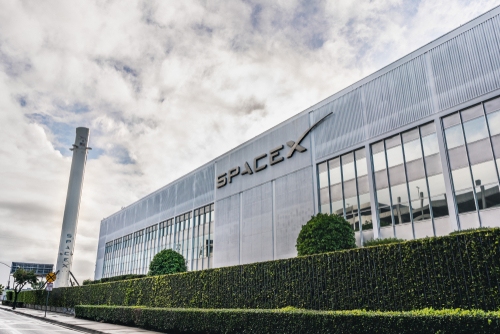Tesla Stock Is Down 13% in 2025: Is It a Long-Term Buy?

In the past few months, shares of Tesla (NASDAQ: TSLA) have rapidly accelerated, rising 69% since late October. This extends an unbelievable streak of huge gains for investors over the years.
Recently, the market quickly became hopeful about the possibility of improving prospects for the company under President Donald Trump. But shares have taken a breather. As of this writing on Feb. 10, they are down 13% in 2025. Does this dip make the electric vehicle (EV) stock a long-term buy?
Facing some challenges
Tesla provided investors with some fresh data when it reported financial results for the last three months of 2024. Revenue of $25.7 billion and adjusted earnings per share (EPS) of $0.73 both missed Wall Street estimates, which wasn't welcome news for shareholders hoping for better-than-expected results.
That top-line figure was up only 2% year over year. Even worse, automotive revenue declined 8%. Lower average selling prices for the Model S, Model 3, Model X, and Model Y made an impact.
It's worth pointing out Tesla's inability to grow vehicle deliveries, which totaled just under 1.8 million in 2024, slightly below the year before. This was the first time ever that this key metric fell on an annual basis.
Management said it expects the vehicle business to return to growth in 2025. A cheaper car model will start production this year, which could help drive greater volume.
First and foremost, this is a car company
Tesla's financial performance over the past several quarters clearly shows that this resembles a traditional car company instead of some high-flying tech enterprise. Investors can't ignore some negative characteristics about its operations.
For starters, the business no longer stands out as much in what is becoming a very competitive EV market. There are numerous options for customers when buying a new EV, both from domestic players and international rivals. The automaker registered tremendous growth for many years, but this hasn't been the case more recently.
The result is diminishing pricing power, which was alluded to earlier. Consequently, profitability has come under immense pressure. Gross margin and operating margin of 17.9% and 7.2%, respectively, in 2024 were both much lower than they were two years ago.
Maybe even more worrying is the fact that the business is demonstrating a sensitivity to macroeconomic factors. For example, higher interest rates make cars less affordable, something that hurts demand. And it's hard to argue that inflationary pressures also won't hurt a consumer's ability and willingness to buy a new EV, especially ones on the premium end of the market where Tesla sits.
Where's the margin of safety?
CEO Elon Musk unsurprisingly urges investors to focus on the bigger picture. For Tesla, this means a future characterized by autonomous driving and robotics. Should the business make great strides in further developing these areas, while finding success in commercializing the technologies, then maybe there's outsize success down the road.
However, it's easy to be a bit skeptical. Full self-driving (FSD) capabilities could still be a long way off. There are still technical and regulatory hurdles to clear. And it could be a while until consumers become comfortable giving up complete control when riding in a car, if this happens at all.
If you look at the stock's valuation, it appears that success with FSD tech and broad adoption are a virtual certainty. Shares currently trade at a price-to-earnings ratio of 176.7, implying monster financial gains in the not-too-distant future.
Based on the fact that Tesla is still just a car company today that's facing pricing pressure and is struggling to grow in the face of intensifying competition, the stock looks extremely overvalued. Although shares are down by double digits in 2025, investors should avoid them.








